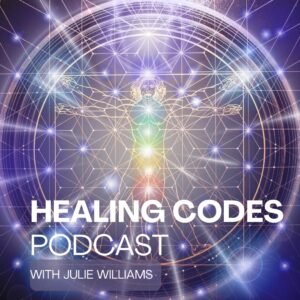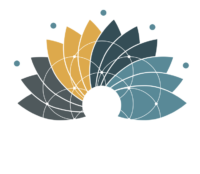 Today’s blog is the second in the Dopamine Detox series exploring what dopamine is, how it drives instant rewards and why breaking free from constant stimulation can lead to better mental, emotional and physical health. In the last blog, Dopamine Detox, I covered the basics of how dopamine works in your body and how reducing high-stimulation activities can be used to balance dopamine-driven behaviours to improve focus, reduce anxiety and activate natural happiness. Today, I’ll take you deeper on this journey to help you identify and work with your own dopamine-driven behaviours to repattern them into ones that serve your greatest good.
Today’s blog is the second in the Dopamine Detox series exploring what dopamine is, how it drives instant rewards and why breaking free from constant stimulation can lead to better mental, emotional and physical health. In the last blog, Dopamine Detox, I covered the basics of how dopamine works in your body and how reducing high-stimulation activities can be used to balance dopamine-driven behaviours to improve focus, reduce anxiety and activate natural happiness. Today, I’ll take you deeper on this journey to help you identify and work with your own dopamine-driven behaviours to repattern them into ones that serve your greatest good.
Key Topics Include:
- How dopamine is part of our body’s internal wisdom.
- Understand what dopamine is and how it serves you.
- Learn how becoming desensitised to dopamine’s positive effects can lead to burnout and lack of motivation.
- Understand how to reset your dopamine reward system to activate your natural joy.
- Experience a guided meditation to understand your reward-seeking behaviours and install new habits for a healthy dopamine balance.
Dopamine is part of our body’s internal wisdom, working to support a sense of pleasure, motivation, and fulfilment. Often called the “feel-good” neurotransmitter, dopamine guides us toward things that bring joy, satisfaction, and growth, energising us to pursue goals, make meaningful connections, and fulfil our purpose in life.
When dopamine flows smoothly, we feel motivated, energised, and in sync with our inner drive. But, when the balance of dopamine is disrupted—either from stress, overstimulation, or emotional strain—our sense of motivation and joy can diminish, leading to imbalance and symptoms of burnout, anxiety, addiction and depression.
By understanding dopamine not just as a chemical, but as part of our journey towards well-being, we can nurture the inner and outer practices that bring balance: connecting deeply with others, engaging in fulfilling activities, and grounding ourselves in presence and mindfulness.
Because dopamine is released when we experience something enjoyable it is part of our internal reward system. When we feel pleasure and get a hit of dopamine, our systems are encouraged to repeat that behaviour, reinforcing behaviours that lead to positive outcomes.
However many people have become numb to the positive effects of dopamine by becoming desensitised to it. This occurs when the brain becomes less responsive to dopamine due to prolonged or intense overstimulation of its reward system. The most common ones I see are too much screen time, excessive sugar intake, smoking, alcohol, caffeine and sex.
This is essentially a dopamine addiction, where the intense need for immediate gratification drives behaviours. Like any addiction, over time, it takes more and more of the substance to have the same effect, reducing dopamine receptor sensitivity. This leads to a need for even higher levels of stimulation to feel the same pleasure, creating a cycle of dependency and reduced reward responses.
It’s important to note here that dopamine addition isn’t an official clinical term, but it is useful to describe a cycle of behaviour of continuously seeking activities that stimulate the brain’s dopamine release. This is closely related to the idea of a behavioural addiction where the pursuit of a pleasurable activity, becomes overly dependent on the rewarding feelings dopamine provides, rather than on dopamine itself.
Research highlights that dopamine desensitization can profoundly affect emotional, cognitive, and behavioral well-being. Over time, dopamine desensitization can lead to the inability to feel pleasure, even from activities that used to bring joy. This results in diminished motivation, making tasks feel more effortful and less rewarding. Dopamine’s role in focus and learning is also impacted; desensitization can lead to cognitive challenges like memory issues, difficulty concentrating, and impaired decision-making, which may reduce productivity and academic performance.
Additionally, dopamine desensitization can increase risk-taking behaviors. When normal dopamine stimuli lose their impact, it causes us to pursue intense experiences or risky behaviors—such as substance abuse or infidelity—to recreate feelings of reward. This effect makes dopamine desensitization super relevant in addiction studies, where it’s understood to reinforce cycles of addictive behavior.
Other effects of losing our sensitivity to dopamine include the increase of mood disorders like depression and anxiety, as dopamine plays a central role in emotional regulation. Chronic stress, which both causes and worsens dopamine desensitization, often contributes to these symptoms by dulling the brain’s reward response. Over time, a desensitized dopamine system can also impact sleep and appetite, which are crucial for overall well-being, further contributing to these negative cycles.
Long-term consequences extend beyond personal satisfaction, affecting social interactions and relationships due to reduced motivation for engagement and increased irritability.
Dopamine desensitization can be seen as a call from the body’s innate intelligence, inviting us to return to balance and reconnect with authentic sources of fulfilment.
Fortunately, studies suggest lifestyle modifications—such as regular exercise, quality sleep, mindfulness practices, and time away from overstimulating environments—can help the brain regain dopamine sensitivity, which is what we call a dopamine detox, which I talked about in the previous blog.
While the name dopamine detox suggests reducing the amount of this neurotransmitter, it is actually not that as we need it for natural healthy functions. Instead, a dopamine detox is about learning to re-sensitize the brain by seeking reward through self-care behaviours that bring a sense of pleasure, satisfaction and connecting with loved ones. It’s an invitation to rediscover joy in simple moments and cultivate resilience to engage with life in a way that fosters authentic pleasure and purpose.
If you have been following this series, perhaps you have been able to identify the triggers that create your dopamine desensitization. Becoming aware of these behaviours is the first step to reclaiming your joy, motivation and creativity.
OK, so now let’s talk about you. Let’s explore together the behaviours that have led you down a path of needing a domapine reset so you can feel motivated, energised and build emotional resilience.
Here is a guided meditation to help you understand your triggers and associated reward-seeking behaviours and install new habits to restore a healthy dopamine balance for health and well-being.
Take a moment to find a quiet and still place where you can be free from distraction for the next few minutes. Feel free to have a notebook or journal nearby to write down what comes up for you and pause this if you need more time to explore the answers. I will give you examples of behaviours during the meditation as a prompt to help you identify these for yourself. If one of these examples resonates deeply through your senses, note this as it may be one to look at.
Take a deep breath, relax and become fully present in the here and now. Let the thoughts of the past and future fade into the background as you drop into your heart to connect with your inner wisdom.
Now, answer this, using the first thought that comes to you.
When I experience stress, loneliness or boredom my go-to comfort behaviour or behaviours: maybe it is eating, drinking caffeine or alcohol, smoking, scrolling on social media, or bingeing on television or video games.
If you have identified multiple behaviours, choose the one. You can repeat this again with the others later.
Now, answer this: This behaviour gives me immediate pleasure in the following ways:
Examples: What immediate pleasure does this behaviour give you?
Examples: The sweet taste of a sugary snack, the burst of energy from caffeine, the relaxation of a drink, feeling grounded when you smoke, and a welcome distraction to relieve pain.
Now, consider this…after you’ve acted on this behaviour, do you regret it or beat yourself up for it? If your answer is yes then drop into your heart and have compassion for yourself. While welcoming in the deeper wisdom of your soul that wants you to know this behaviour is not serving your greatest good.
Take a breath and feel the support of your ancestors, mentors, teachers, inspirations holding you. Allow yourself to relax in the comfort of their blessings and unconditional love. Let yourself be held, just for a moment. Know that you are loved, loving and loveable.
Get a true felt sense of this love and support. Feel it through your whole body. Like you are floating in a love bath, soaking it in through all the cells of your body.
Notice the pleasurable sensations you feel making this connection with the strength of your ancestors, the sparkle of your creative parts, the energy of inspiration, and the wisdom of knowledge. Allow this pleasure to activate your spirit and deepen your soul.
This is now a place you can come back to when you feel triggered and reach for old behaviours you used to use for comfort but now see they do not serve your greatest good.
Next, it’s time to identify another behaviour you can do that will bring you greater reward based on the pleasure you receive from your dopamine-seeking behaviour.
With a full heart, tune into the pleasure you get from the behaviour you identified earlier. Are there other ways you can get this reward with a longer-term benefit?
Consult with your support team for ideas. For example, instead of smoking to feel grounded and calm, perhaps try a walk in nature, or a short meditation to activate your root chakra. If you want to distract yourself from emotional pain, call on the support of your ancestors to find the strength to look at this pain with the assistance of a skilled therapist. If you are seeking a burst of energy, try doing breathwork or movement to stimulate your energy flow.
Now, make a promise to yourself to trade one excessive dopamine-stimulating behaviour for one that is aligned with self-care, creating a long-term reward to balance your dopamine systems. Slow and steady wins the race here, so stick with it and notice how small changes over time will help you reclaim your joy in life.
Tune in for the next blog as I’ll delve more deeply into how to address and heal the dopamine desensitization to reverse burnout.
You can enjoy listening to this article on a Healing Codes Podcast episode by clicking on the link below.
_____________
Find out more about Consciousness Medicine.
Upcoming courses, workshops and 1:1 sessions.
Sign up for my free e-newsletter from the homepage www.consciousness-medicine.com.
Stay Connected on Social Media:
Facebook: www.facebook.com/CentreforConsciousnessMedicine
Instagram: www.instagram.com/wellnesswisdomwithjulie
Linked In: www.linkedin.com/in/julie-williams-cxmed


